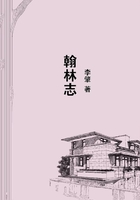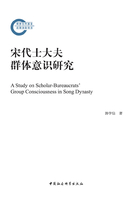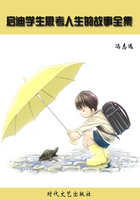It was a pity, he said, that the Rothschilds were not on his letter of credit; he would have been willing to pay tribute to the Genius of Finance in the percentage on at least ten pounds. But he consoled himself by reflecting that he did not need the money; and he consoled Mrs. March for their failure to penetrate to the interior of the Rothschilds' birthplace by taking her to see the house where Goethe was born. The public is apparently much more expected there, and in the friendly place they were no doubt much more welcome than they would have been in the Rothschild house. Under that roof they renewed a happy moment of Weimar, which after the lapse of a week seemed already so remote. They wondered, as they mounted the stairs from the basement opening into a clean little court, how Burnamy was getting on, and whether it had yet come to that understanding between him and Agatha, which Mrs. March, at least, had meant to be inevitable. Then they became part of some such sight-seeing retinue as followed the custodian about in the Goethe horse in Weimar, and of an emotion indistinguishable from that of their fellow sight-seers. They could make sure, afterwards, of a personal pleasure in a certain prescient classicism of the house. It somehow recalled both the Goethe houses at Weimar, and it somehow recalled Italy. It is a separate house of two floors above the entrance, which opens to a little court or yard, and gives access by a decent stairway to the living-rooms. The chief of these is a sufficiently dignified parlor or salon, and the most important is the little chamber in the third story where the poet first opened his eyes to the light which he rejoiced in for so long a life, and which, dying, he implored to be with him more. It is as large as his death-chamber in Weimar, where he breathed this prayer, and it looks down into the Italian-looking court, where probably he noticed the world for the first time, and thought it a paved enclosure thirty or forty feet square. In the birth-room they keep his puppet theatre, and the place is fairly suggestive of his childhood; later, in his youth, he could look from the parlor windows and see the house where his earliest love dwelt. So much remains of Goethe in the place where he was born, and as such things go, it is not a little. The house is that of a prosperous and well-placed citizen, and speaks of the senatorial quality in his family which Heine says he was fond of recalling, rather than the sartorial quality of the ancestor who, again as Heine says, mended the Republic's breeches.
From the Goethe house, one drives by the Goethe monument to the Romer, the famous town-hall of the old free imperial city which Frankfort once was; and by this route the Marches drove to it, agreeing with their coachman that he was to keep as much in the sun as possible. It was still so cold that when they reached the Romer, and he stopped in a broad blaze of the only means of heating that they have in Frankfort in the summer, the travellers were loath to leave it for the chill interior, where the German emperors were elected for so many centuries. As soon as an emperor was chosen, in the great hall effigied round with the portraits of his predecessors, he hurried out in the balcony, ostensibly to show himself to the people, but really, March contended, to warm up a little in the sun. The balcony was undergoing repairs that day, and the travellers could not go out on it; but under the spell of the historic interest of the beautiful old Gothic place, they lingered in the interior till they were half-torpid with the cold. Then she abandoned to him the joint duty of viewing the cathedral, and hurried to their carriage where she basked in the sun till he came to her. He returned shivering, after a half-hour's absence, and pretended that she had missed the greatest thing in the world, but as he could never be got to say just what she had lost, and under the closest cross-examination could not prove that this cathedral was memorably different from hundreds of other fourteenth-century cathedrals, she remained in a lasting content with the easier part she had chosen. His only definite impression at the cathedral seemed to be confined to a Bostonian of gloomily correct type, whom he had seen doing it with his Baedeker, and not letting an object of interest escape; and his account of her fellow-townsman reconciled Mrs.
March more and more to not having gone.
As it was warmer out-doors than in-doors at Frankfort, and as the breadth of sunshine increased with the approach of noon they gave the rest of the morning to driving about and ignorantly enjoying the outside of many Gothic churches, whose names even they did not trouble themselves to learn. They liked the river Main whenever they came to it, because it was so lately from Wurzburg, and because it was so beautiful with its bridges, old and new, and its boats of many patterns. They liked the market-place in front of the Romer not only because it was full of fascinating bargains in curious crockery and wooden-ware, but because there was scarcely any shade at all in it. They read from their Baedeker that until the end of the last century no Jew was suffered to enter the marketplace, and they rejoiced to find from all appearances that the Jews had been making up for their unjust exclusion ever since. They were almost as numerous there as the Anglo-Saxons were everywhere else in Frankfort. These, both of the English and American branches of the race, prevailed in the hotel diningroom, where the Marches had a mid-day dinner so good that it almost made amends for the steam-heating and electric-lighting.
As soon as possible after dinner they took the train for Mayence, and ran Rhinewards through a pretty country into what seemed a milder climate.
It grew so much milder, apparently, that a lady in their compartment to whom March offered his forward-looking seat, ordered the window down when the guard came, without asking their leave. Then the climate proved much colder, and Mrs. March cowered under her shawls the rest of the way, and would not be entreated to look at the pleasant level landscape near, or the hills far off. He proposed to put up the window as peremptorily as it had been put down, but she stayed him with a hoarse whisper, "She may be another Baroness!" At first he did not know what she meant, then he remembered the lady whose claims to rank her presence had so poorly enforced on the way to Wurzburg, and he perceived that his wife was practising a wise forbearance with their fellow-passengers, and giving her a chance to turn out any sort of highhote she chose. She failed to profit by the opportunity; she remained simply a selfish, disagreeable woman, of no more perceptible distinction than their other fellow-passenger, a little commercial traveller from Vienna (they resolved from his appearance and the lettering on his valise that he was no other), who slept with a sort of passionate intensity all the way to Mayence.















